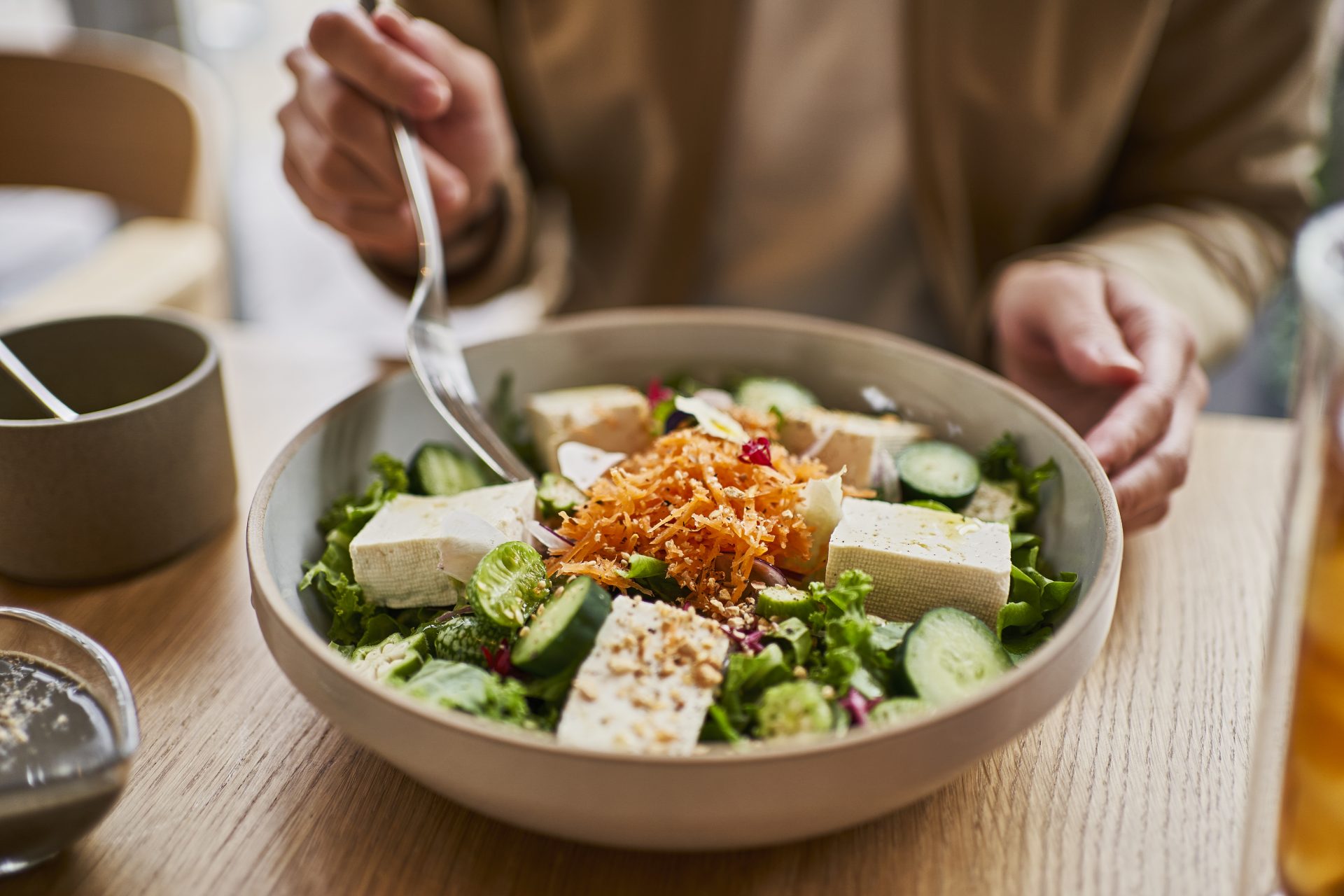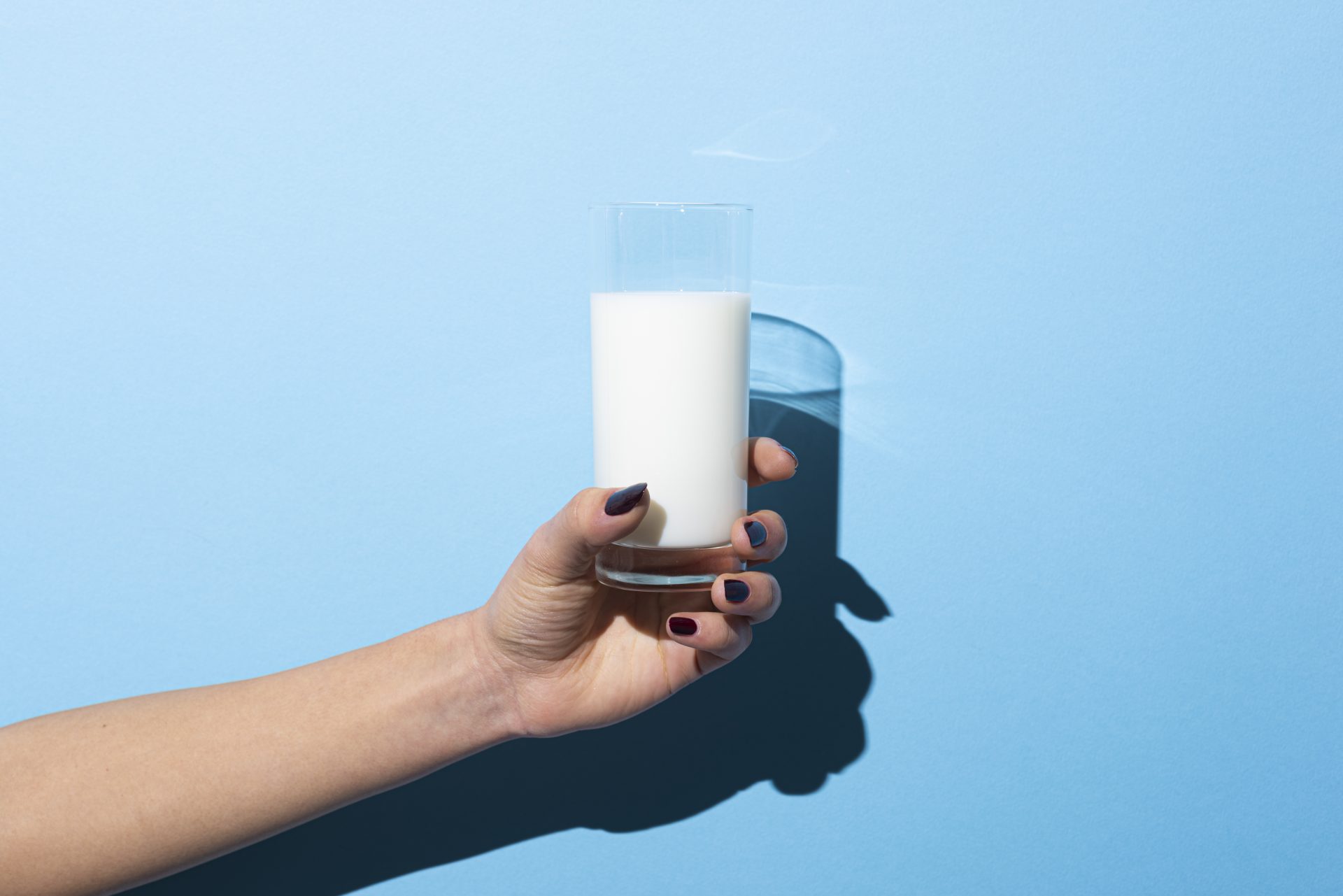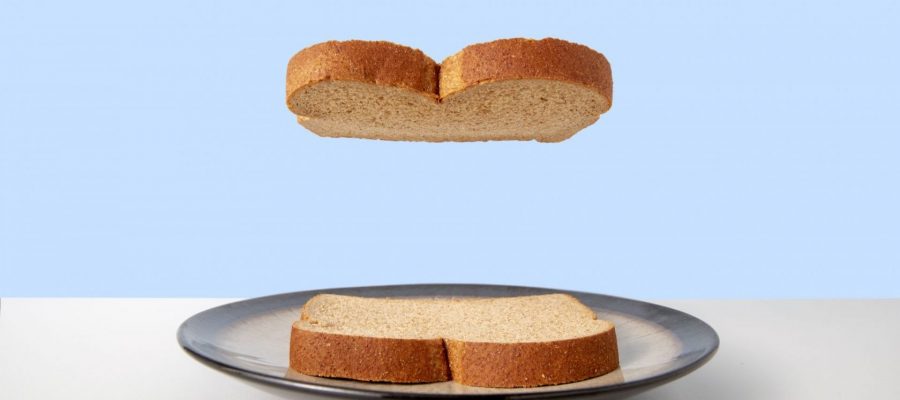This January, we’re on the search for quick, accessible hacks to kickstart 2023 in the strongest way possible. Today’s nutrition kickstarter: 11 healthy eating myths you need to stop believing in.
Healthy eating should be simple: eat more plants, drink more coffee and enjoy foods that make you feel good. The reality is somewhat more complicated, with endless healthy eating myths sullying the waters and confusing many of us who want to make the best decisions for our fitness goals and overall health.
To help, we’ve gathered together nutritional scientists and dieticians to explore the most common nutritional misconceptions. From the truth behind the benefits of going gluten-free if you’re not coeliac to why white potatoes are the original superfood, this is your guide to healthy eating – fact checked.
You may also like
30 plants a week: “I ditched five-a-day for a more scientific gut health challenge”
MYTH: Soya gives you breast cancer
Originally from southeast Asia, the soya plant was discovered 5,000 years ago – and today, it’s still something of a power plant. It contains all nine of the essential amino acids needed to build lean muscle, as well as containing healthy monounsaturated and polyunsaturated fats. According to Rohini Bajekal, nutritionist and board-certified lifestyle medicine professional at Plant Based Health Professionals UK, “consuming soya foods has also been observed to maintain bone density and potentially decrease fractures in postmenopausal women,” while tofu and tempeh are great sources of plant-based iron and antioxidants.
So, where does the myth about soya being bad for us come from? “Much of the research which gave soya a bad reputation was conducted in animal (rat) studies and was not reproducible in humans,” Bajekal explains. “Other trials which reported negative effects were associated with extremely large quantities of soya phytoestrogens which would be very difficult to replicate in the diet.”

The issue, many people think, is that soya mimics the effects of oestrogen – making male bodies more feminine and putting women at risk of breast cancer. Soya does have phyto or plant oestrogens but they selectively attach themselves to beta receptors in tissues such as breast and bone. That means soya actually has the ability to “block the action of excess mammalian oestrogen which is found in animal tissue (such as meat and dairy) and also blocks excess endogenous oestrogen from our excess body fat, both types bind to both alpha and beta receptors,” she explains.
Studies show that soya has no negative impact on male or female fertility. In fact, it’s been proven to reduce the risk of prostate cancer, breast cancer and cardiovascular disease, while also providing us with a range of micronutrients such as calcium, zinc and iron.
“Even as little as one portion of soya starting early in childhood or as a young adult seems to have benefits in reducing our breast and prostate cancer risks later in life, with thousands of peer-reviewed articles and numerous studies over 30 years of research have confirmed the safety and benefits of soya,” confirms Bajekal.
You may also like
This protein-rich ma po tofu recipe makes for a light yet satisfying lunch
MYTH: Bread is bad for you
The war on bread has been long and painful. Many of us have been brought up to see bread as one of the worst foods you can eat, with phrases like “no carbs before Marbs” – cementing this idea that bread should be avoided. While some shop-bought bread can be highly processed, making your own requires very few ingredients (flour, water, salt and sugar). Add some seeds and use whole grain flour, you can make a fibre and vitamin E-rich loaf that you can fill with lots of healthy, delicious foods. In fact, a 2020 study found that eating protein from plant-based foods like bread instead of from animal sources has been linked to a lower risk of death.
Published in the JAMA Internal Medicine journal, researchers looked at data on 416,104 men and women, over a 16-year-period. They concluded that eating plant protein was linked to a lower chance of dying overall and from cardiovascular disease and that this association was at its strongest when people chose bread and pasta over meat and eggs. Fire up the sourdough starter!
MYTH: Sweet potatoes are better than white ones
“Potatoes aren’t bad for you!” says Toral Shah, nutritional scientists, certified functional medicine practitioner and founder of The Urban Kitchen. “They’re really high in fibre, vitamin B and other nutrients – particularly if you keep the skins on. But what’s really special about white potatoes is what happens when you cook enough to have leftovers. Leftover potatoes have higher levels of resistant starch and a lower GI (glucose) profile.”
In an ideal world, you’d cook them, allow them to cool down and then either reheat or eat cold to increase gut-loving fibre and promote more slow-release energy. Who knew that potato salads were basically a superfood? While sweet potatoes may be full of beta carotene (which gives them their orange colour), regular tatties can be really good for us!
MYTH: Going gluten-free can make us all healthier
“The gluten-free trend has created a great deal of confusion among the general public,” says Bajekal. Gluten is a general name for the proteins found in wheat rye, barley and triticale. It helps foods maintain their shape and structure, acting as a “glue” that holds food together.
Bajekal says that despite misconceptions, “there is no need to avoid gluten unless there is a diagnosis of coeliac disease, which affects around 1% of the Western population and 1.4% of the global population, or non-coeliac gluten sensitivity.” Coeliac disease is an autoimmune condition that results in an immune response to gluten in the small intestine. This condition can be life-threatening, linked to issues such as infertility and iron-deficiency anaemia and Bajekal warns that “those with coeliac disease should completely avoid gluten, which can also be found in unsuspecting foods such as beer or soya sauce.”
Given that gluten crops up in things like bulgar wheat and oats – both of which are rich in fibre and micronutrients – there’s a big risk that going gluten-free unnecessarily will mean undereating super-nutritious whole grains. Bajekal’s advice for people who do need to be gluten-free is to enjoy as many GF grains as possible, including quinoa, red rice, amaranth, buckwheat, teff and gluten-free certified oats if they are tolerable (“some people with coeliac disease still react to these”).
“Also, if possible, try gluten-free certified buckwheat pasta which is higher in protein, fibre and micronutrients than many gluten-free kinds of pasta made from refined corn flour and rice flour.”
MYTH: Carbs are best avoided at night
“Your body needs carbs,” explains registered dietitian Catherine Rabess. “Our brain functions on glucose which is converted from starchy carbohydrates. Without them, we lack concentration, focus and can be very tired.”
It doesn’t matter what time of day you eat toast or potatoes, and you definitely don’t have to stop eating them by 4pm. If our bodies and brains are still functioning, we need carbs.
MYTH: Raw fruit and veg is better than cooked
If you’ve ever heard of Raw till 4, you’ll know that some people believe that swerving cooked fruit and veg in favour of the raw stuff is more healthy. No doubt, choosing to eat a largely raw diet does dramatically increase your portions of plants and reduces the amount of nutritionally-valueless junk food being consumed, but some plants are better for us when cooked.
“Tomatoes, for example, contain lycopene which is the most amazing antioxidant,” explains Shah. “It’s a precursor of vitamin A and beta carotene, which is released more when tomatoes are cooked rather than eaten raw. Ketchup and tomato sauce are rich in lycopene, which has properties known to help protect against UV radiation, certain cancers (like lung, breast, prostate, stomach and oral cancer) and heart disease.”
MYTH: We need to detox
Have you ever come across a GP or dietitian who’s advocated for detox plans or juice cleanses? Unlike the influencers and juice brands who advertise month-long detoxes, medical professionals have nothing to gain from persuading members of the public to override their natural detox system in favour of expensive, fibre-free, energy-depleting fasts. “We do not need to go on any of these cleanses because our body does this naturally via the kidneys, liver and digestive system,” Rabess confirms.
MYTH: All processed foods need to be avoided
The term “processed food” has a largely negative connotation however, “some gently processed foods can contribute to a healthy dietary pattern,” says Bajekal. “They play an important role in many people’s diets whether it’s due to time, cost, cooking ability, medical issues or any unique nutritional needs – for example when feeding children or older adults.”
Lots of healthy foods count as being lightly “processed”, from fortified plant milks to canned beans, frozen vegetables and berries. Dried fruits, whole grain pasta, wholemeal bread and tofu have also all been in some way processed but no one would suggest that they don’t play a vital role in many diets.

As such, Bajekal suggests basing meals around nutritious whole foods while remembering that “some processed foods can make it easier to meet nutritional needs.” “Frozen foods, for example, have a similar nutritional value to their fresh counterparts and frozen blueberries have been shown to be even higher in antioxidants.”
The things that you want to keep to a minimum are “ultra-processed foods (UPFs”) which are “food-like substances” that offer no health benefits. These include fizzy sugar-sweetened beverages, instant noodles, crisps and packaged biscuits “which can also sometimes include unhealthy trans fats.”
MYTH: Eating lots of fruit alone is good for you
While no one is suggesting that you should cut down on eating fruits (they’re incredibly rich in fibre and antioxidants), it’s wrong to assume that we should be eating our weight in bananas and apples. Shah says that while fruits are healthy, “if you’re trying to maintain your glycemic load and reduce extreme insulin hikes, eating really sugary fruits like mangos on their own isn’t ideal.”
She recommends – especially if you’re diabetic or living with a condition like polycystic ovarian syndrome which often goes hand-in-hand with insulin resistance – pairing fruits with protein. That might mean having a bowl of fruit with a dollop of yoghurt and/or nut butter, or having a handful of nuts alongside your dried mango. You could go really retro and bring back the old apple-and-cheese snack.
MYTH: Coconut oil is the healthiest type of oil
Forget what keto diet evangelists tell you – coconut oil shouldn’t be consumed with wild abandon. While it’s great as a vegan substitute for butter thanks to its ability to solidify at low temperatures, it’s that quality that also makes it very high in saturated fat.
We do need to eat saturated fat but in an ideal world, we’d keep it to a minimum and concentrate on unsaturated fats from things like olives, sunflower seeds and nut butters. Rabess recommends consuming small quantities of coconut oil to avoid raising cholesterol levels.
MYTH: Artificial sweeteners are dangerous
We know that drinking too many fizzy drinks isn’t good for us. The sugar-free versions, however, may be less damaging – despite the common belief that artificial sweeteners are bad for us.
“Sweeteners are actually safe; you would need to have more than nine cans of diet soft drinks to reach the maximum recommended levels in a day! They are also rigorously tested, making them one of the most thoroughly researched ingredients in the world,” Rabess explains. In fact, sweeteners can only be used after approval has been obtained from the European Food Safety Authority (EFSA) – so if you do like adding sweetener to your coffee, go ahead.
Hop over to the Strong Women Training Club for lots of healthy recipes designed to support your fitness goals.
Images: Getty
Source: Read Full Article
